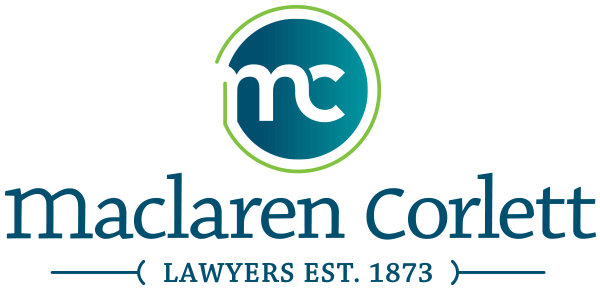Blog

Blog
Government Consultations – Use it or Lose it

The Canadian Government frequently gives industry and the public an opportunity to have input into proposed changes in policy, regulations or legislation. This “consultation period” is an invaluable opportunity for those of us outside the government realm to share views and opinions with them. Too often these opportunities are viewed as a waste of time and the position is taken that the government has already made up its mind as to what it is going to do, so why bother! This blog is written from an industry perspective so my bias is declared. This does not mean that I advocate unsafe or unhealthy measures but I am a great believer in common sense and get greatly frustrated by self-serving and fictitious data which has no scientific basis.
Industry has a unique, and expensive, collection of information which individual companies treat as proprietary – often to the extreme. These entities will defer participation in the consultative process to their trade associations, without giving the trade association the informational backing which is required to be most effective. Given that set of circumstances, industry input into the government consultative process is sometimes stilted and incomplete. A trade association does not necessarily have a complete knowledge base and, what it does have, may become dated without continuous input from its members.
Trade association members, and the trade association itself, are hampered by concern for the Competition Bureau and the threat of how the consolidation of information to make effective submissions during consultations may be viewed by the Bureau. To that concern I would advocate that an undertaking or agreement be entered into with the association that they will preserve the confidentiality of the information, that they will not share it with that company’s competitors and that they will anonymize any information into general submissions made on behalf of the industry as a whole.
Since my greatest familiarity is with Environment Canada and Health Canada as it relates to cosmetics, drugs, natural health products and foods, I will use them as the basis for my points to follow. By way of example only, as I believe the points of assessment relate to any type of government consultation at any level by any department, I will use proposed changes to the Cosmetic Ingredient Hotlist.
Should Health Canada be proposing a change to Hotlist, they will likely be posting the proposed area of change and identify a period of consultation on that proposed change. It should be noted that any such notification would be predicated upon the fact that Health Canada has already come to a conclusion that a change is likely required. The request for consultation may be limited to a statement of what the change will be and perhaps a bit of background as to why Health Canada believes it should be made.
This is the point where industry must jump in to analyze not only the proposed change itself but the background related to it, the evidence upon which that decision is based and the currency of such evidence along with the tools utilized in the collection of such evidence.
I live in Ottawa where I see government departments vie for annual budgets to carry out their day to day administration and efforts to undertake new initiatives. Limits on personnel, increases in costs, political initiatives initiated by the current government, aging equipment, hiring freezes etc. all combine to describe the circumstances under which bureaucrats must conduct their day to day activities. While Health Canada, and other government departments, do have interaction with their counterparts in other countries, that is not the same a Canadian company being part of a multinational organization with resources, research facilities and assets around the world. Health Canada is the sole administrator of its mandate, with a limited budget. A cosmetic company is one of numerous entities comprising the industry, adapts to the respective mandates of numerous countries around the world, has R&D facilities available to it, accessibility to research databases and a collection of personnel and expertise unique to their area.
We have a situation where we have a single entity, with limited resources, regulating industries comprised of many entities with vast resources available to them. This situation can be viewed in basically 3 different ways, i.e. adversarial, cooperative or laissez faire. If it is adversarial in nature then Health Canada has the power of enforcement and will exercise that power unless otherwise directed by Parliament. If the situation is laissez faire then Health Canada will use its resources to come to a conclusion on its own and industry will have to live with it. Obviously, the best circumstance is one of cooperation where Health Canada advises industry and the public of its concerns, the “outsiders” provide input and information to Health Canada to boost its information, understanding and data; thus permitting Health Canada to be in a position to evaluate everything before it and come to a fully informed decision.
That brings us back to consultations. While there are times when industry and the public may become aware that a department is considering re-evaluating a certain area within its sphere of responsibility, it is more likely that the first indication of this activity will be the initiation of consultations. Should that come to pass, we suggest this non-exhaustive approach to this opportunity:
- Read and assess the consultation document to ascertain not only the topic of the consultation but also what you think may be missing from it;
- See if you can ascertain the central issue which gave rise to the department’s position that an action item or change was required;
- Try to obtain from the department the source or basis of the reason for the regulation or change;
- Do your own research, or check your research database for relevant materials to those being used by the department;
- Ask the department what testing equipment and methodology they are using and evaluate that information for accuracy, currency and efficacy;
- Begin working on your input to the consultations early and allow time for comment and revisions by others within your group;
- Make use of any trade association to which you may belong in making submissions on the consultation;
- If you have a unique position, feel free to make those submissions outside of any industry association submissions;
- Be accurate and truthful while avoiding puffery or exaggeration, remembering always to provide verifiable support for your position;
- Invite the department to contact you for further clarification or information; and
- Reserve the right to make further submissions at a later date.
The consultation period may have a follow-up once the department has assessed input made to it, so make sure you monitor the process and take advantage of this further opportunity should it present itself.
Each opportunity for consultation is a unique one of which you should take advantage. Once the department has taken a position after consultation, it will be very hard for you to reverse it. Use that opportunity or it will be lost to you.
All Subject Areas
- Advance Medical Directives
- Advertiser Dispute Procedure
- Advertising and Marketing Law
- Advertising to Children
- Aeronautics, Transportation
- Animal Testing
- Appeals
- Business and Commercial Law
- Canadian Code of Advertising Standards
- Child Support
- Common Law Spouses
- Contest Rules
- Continuing Power of Attorney
- Corporate Law and Governance
- Cosmetics
- Custody & Access
- Divisional Court
- Drones and UAVs
- Equalization Payment
- Estate Administration
- Estate Trustee
- Family Law
- First-Time Home Buyer
- For Fun
- General
- Gifts and/or Inheritances
- Health Canada
- Influencers
- Intellectual Property Law
- Litigation
- Matrimonial Home
- Not-for-profits, Charities
- Offer to Purchase
- Packaging/Labelling
- Performance Claims
- Power of Attorney for Personal Care
- Primary and Secondary Wills
- Promotions
- Quebec
- Real Estate Law
- Regulatory Law
- Self Care Products
- Small Claims Court
- Sports Law
- Supreme Court of Canada Agency
- Trademarks
- Wills, Trusts, Estates and Estate Planning
All Authors

The materials on the Maclaren Corlett LLP web site (the “Site”) have been developed as an electronic resource respecting our organization.
Any information sent to Maclaren Corlett LLP through this Site is not a confidential lawyer-client communication. No lawyer-client relationship is created by such correspondence or by you accessing the materials on this Site.
Any information sent or received over the Internet is generally not secure. Maclaren Corlett LLP cannot guarantee the security of any communication to or from the Site, nor does it assume any responsibility or risk for your use of the Internet.
The Site and Content is provided on an “as is” and “as available” basis, without any warranty or condition of any kind, either express or implied. YOU ACKNOWLEDGE AND AGREE THAT YOU ARE USING THE SITE AND THE CONTENT, IF APPLICABLE, ENTIRELY AT YOUR OWN RISK AND LIABILITY.
By accessing or using the Site, you agree that all matters relating to your access or use of the Site and Content or to these Terms shall be governed by the laws of the Province of Ontario and the federal laws of Canada applicable therein excluding any conflict of laws principles.
All material on this site is copyright by Maclaren Corlett LLP and may not be reproduced in any form for commercial purposes without its express written consent.
Please contact us for a copy of our Privacy policy.
